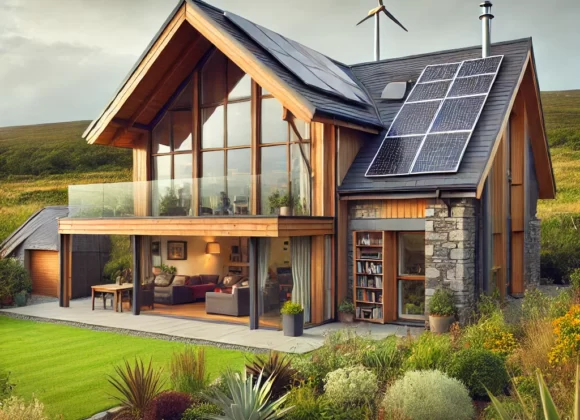The Synergy of Electric Vehicles, Solar Panels, and Energy Performance Certificates (EPC) in the UK
In an era of rapid climate change, the shift towards a more sustainable future is no longer a choice, but a necessity. An integral part of this revolution are electric vehicles (EVs), solar panels, and energy performance certificates (EPC) in the UK. These elements intertwine to form an ingenious synergy that promises to drive us towards a carbon-neutral future.
To start with, EVs are becoming increasingly mainstream in the UK, thanks to their improved affordability and the strengthening of the public charging infrastructure. The government’s plan to ban the sale of new petrol and diesel cars by 2030 has spurred a significant uptick in EV adoption. These vehicles do not emit carbon dioxide or any harmful pollutants during operation, significantly reducing the transport sector’s environmental footprint.
Solar panels, on the other hand, harness the sun’s energy and convert it into usable electricity. They are a clean, renewable, and an abundantly available source of power. In the UK, an increasing number of households are installing solar panels, driven by the desire to reduce reliance on the national grid, cut electricity bills, and contribute to a cleaner environment.
But what links EVs and solar panels in a synergy that epitomizes a sustainable future?
The connection is simple yet profound: EVs need electricity, and solar panels produce it. Charging EVs directly from solar panels slashes the carbon emissions associated with traditional fossil fuel-based electricity generation. A home with solar panels can generate enough energy during the day not only to power the household but also to charge an EV. This clean energy solution is efficient, cost-effective, and, importantly, much more sustainable.
The last element of this synergy, the EPC, ties the whole concept together. An EPC is a measure of a property’s energy efficiency, issued following an assessment by an accredited domestic energy assessor. It ranks the property’s energy efficiency from A (most efficient) to G (least efficient). Since 2008, it has been a legal requirement for properties in the UK when they are built, sold, or rented.
The integration of EVs and solar panels can substantially improve a property’s EPC rating. A higher EPC score indicates lower energy costs, a smaller carbon footprint, and an overall more energy-efficient home. Prospective buyers and renters are increasingly looking for high EPC ratings as they become more energy-conscious. This growing demand is encouraging more homeowners to invest in solar panels and EV charging points, boosting their property’s value and attractiveness in the process.
Moreover, the UK government’s Green Homes Grant Scheme and Electric Vehicle Homecharge Scheme have made such installations more affordable, spurring the transformation towards sustainable living. The financial incentives coupled with environmental and societal benefits are creating a positive loop that further fuels the adoption of EVs, solar panels, and higher EPC ratings.
To conclude, the synergy between EVs, solar panels, and EPCs is more than just an innovative concept. It’s a promising blueprint for the UK’s path towards sustainability. By powering our vehicles with the sun’s energy and making our homes more energy-efficient, we can significantly cut our carbon emissions and contribute to a greener future. This powerful trifecta not only represents the convergence of sustainable technology but also underscores our collective responsibility towards the planet. As we make strides towards a carbon-neutral future, it’s clear that the synergy of EVs, solar panels, and EPCs will play a crucial role in the UK’s sustainable transition.



